-
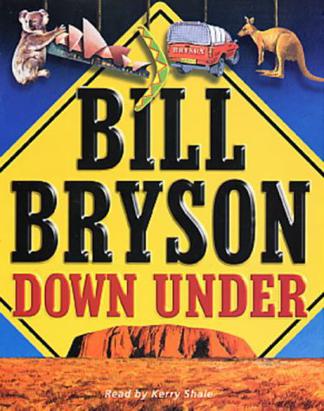
Down Under
After tales from the USA and Britain, Bill Bryson turns his roving eye to Australia, the only island that is also a continent and the only continent that is also a country. It is the driest, flattest, most desiccated, infertile and climatically aggressive of all the inhabited continents. It has more things that can kill you in a very nasty way that anywhere else. Yet when Bill Bryson travelled to Australia he promptly fell in love with the country. And who can blame him? The people are cheerful, the cities safe and clean, the food is excellent, the beer is cold and the sun nearly always shines. He tries to find out why Aussies are so cool, digging up a past that reveals convicts, explorers, gold diggers and outlaws. -
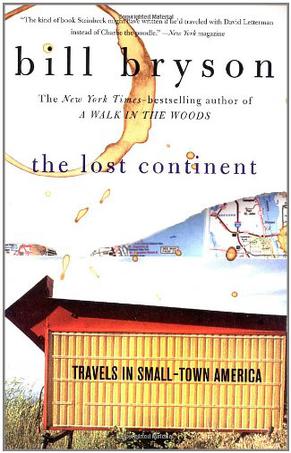
The Lost Continent
An unsparing and hilarious account of one man's rediscovery of America and his search for the perfect small town. -
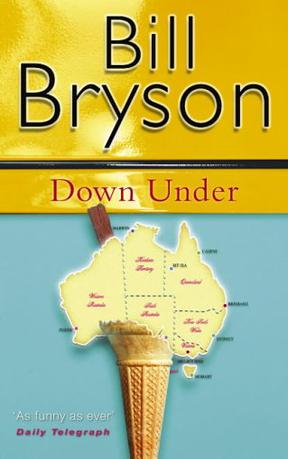
Down Under
It was as if I had privately discovered life on another planet, or a parallel universe where life was at once recognizably similar but entirely different. I can't tell you how exciting it was. Insofar as I had accumulated my expectations of Australia at all in the intervening years, I had thought of it as a kind of alternative southern California, a place of constant sunshine and the cheerful vapidity of a beach lifestyle, but with a slightly British bent - a sort of Baywatch with cricket…' Of course, what greeted Bill Bryson was something rather different. Australia is a country that exists on a vast scale. It is the world's sixth largest country and its largest island. It is the only island that is also a continent and the only continent that is also a country. It is the driest, flattest, hottest, most desiccated, infertile and climatically aggressive of all the inhabited continents and still it teems with life - a large proportion of it quite deadly. In fact, Australia has more things that can kill you in a very nasty way than anywhere else. This is a country where even the fluffiest of caterpillars can lay you out with a toxic nip, where seashells will not just sting you but actually sometimes go for you. If you are not stung or pronged to death in some unexpected manner, you may be fatally chomped by sharks or crocodiles, or carried helplessly out to sea by irresistable currents, or left to stagger to an unhappy death in the baking outback. Ignoring such dangers - yet curiously obsessed by them - Bill Bryson journeyed to Australia and promptly fell in love with the country. And who can blame him? The people are cheerful, extrovert, quick-witted and unfailingly obliging; their cities are safe and clean and nearly always built on water; the food is excellent; the beer is cold and the sun nearly always shines. Life doesn't get much better than this. -
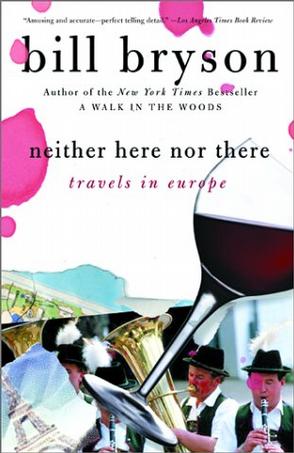
Neither Here Nor There
Like many of his generation, Bill Bryson backpacked across Europe in the early seventies -- in search of enlightenment, beer, and women. Twenty years later he decided to retrace the journey he undertook in the halcyon days of his youth. The result is Neither Here Nor There, an affectionate and riotously funny pilgrimage from the frozen wastes of Scandinavia to the chaotic tumult of Istanbul, with stops along the way in Europe's most diverting and historic locales. Like many of his generation, Bill Bryson backpacked across Europe in the early seventies--in search of enlightenment, beer, and women. Twenty years later he decided to retrace the journey he undertook in the halcyon days of his youth. The result is Neither Here Nor There, an affectionate and riotously funny pilgrimage from the frozen wastes of Scandinavia to the chaotic tumult of Istanbul, with stops along the way in Europe's most diverting and historic locales. -
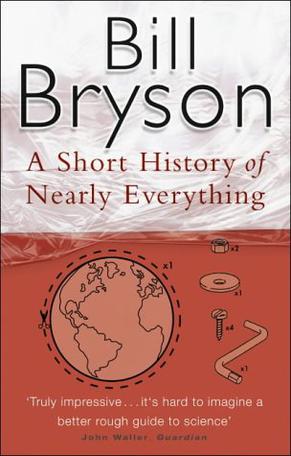
A Short History of Nearly Everything
Bill Bryson describes himself as a reluctant traveller: but even when he stays safely in his own study at home, he can't contain his curiosity about the world around him. A Short History of Nearly Everything is his quest to find out everything that has happened from the Big Bang to the rise of civilization - how we got from there, being nothing at all, to here, being us. Bill Bryson's challenge is to take subjects that normally bore the pants off most of us, like geology, chemistry and particle physics, and see if there isn't some way to render them comprehensible to people who have never thought they could be interested in science. It's not so much about what we know, as about how we know what we know. How do we know what is in the centre of the Earth, or what a black hole is, or where the continents were 600 million years ago? How did anyone ever figure these things out? On his travels through time and space, he encounters a splendid collection of astonishingly eccentric, competitive, obsessive and foolish scientists, like the painfully shy Henry Cavendish who worked out many conundrums like how much the Earth weighed, but never bothered to tell anybody about many of his findings. In the company of such extraordinary people, Bill Bryson takes us with him on the ultimate eye-opening journey, and reveals the world in a way most of us have never seen it before. -
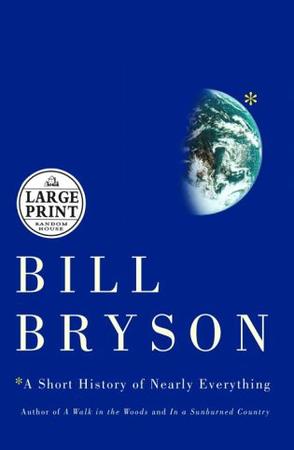
A Short History of Nearly Everything
One of the world’s most beloved and bestselling writers takes his ultimate journey -- into the most intriguing and intractable questions that science seeks to answer. In A Walk in the Woods , Bill Bryson trekked the Appalachian Trail -- well, most of it. In In A Sunburned Country , he confronted some of the most lethal wildlife Australia has to offer. Now, in his biggest book, he confronts his greatest challenge: to understand -- and, if possible, answer -- the oldest, biggest questions we have posed about the universe and ourselves. Taking as territory everything from the Big Bang to the rise of civilization, Bryson seeks to understand how we got from there being nothing at all to there being us. To that end, he has attached himself to a host of the world’s most advanced (and often obsessed) archaeologists, anthropologists, and mathematicians, travelling to their offices, laboratories, and field camps. He has read (or tried to read) their books, pestered them with questions, apprenticed himself to their powerful minds. A Short History of Nearly Everything is the record of this quest, and it is a sometimes profound, sometimes funny, and always supremely clear and entertaining adventure in the realms of human knowledge, as only Bill Bryson can render it. Science has never been more involving or entertaining.